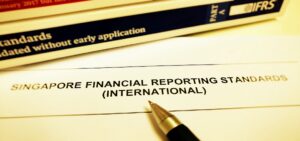A Complete Compliance Guide For Singapore Companies
Are you thinking of starting a new company in Singapore? Do you have plans to make Singapore your company’s base? There are many tax benefits as well as other advantages incorporating a Singapore company, however, you also face an increment in compliance requirements. The purpose of this article is to give you a complete compliance guide on starting a Singapore company, under Singapore’s jurisdiction.
-
Registered office address

All companies incorporated in Singapore must have a registered office address so that all government official notices and letters can be sent. It must be an actual physical place that is located in Singapore. It should be open to the public during business hours, on every business day, for three (3) hours minimum.
Of course, foreign clients who are unable to travel frequently over to Singapore, have the option of using a virtual office service instead. They provide a legitimate Singapore business address and mail forwarding services for a recurring monthly fee. This is a much more affordable option as opposed to buying a physical property in Singapore.
You may click here for more advice or information if you have plans to rent or purchase a commercial property in Singapore.
-
Minimum 1 Singapore resident director

In every Singapore company, there has to be at least one (1) director who is a resident of Singapore. Note here that this does not mean that the person has to be a Singapore citizen. He or she can be a foreigner with a valid work or employment pass. He or she must be:
- A natural person (a company cannot be a director)
- A minimum of 18 years old
- In full legal mental capacity to act and make decisions (Anyone who has an impairment of brain and mind is considered unfit to act as a director)
An undischarged bankrupt cannot be appointed as a director. There are also some instances where the person will be automatically disqualified, such as:
- Convicted in Singapore courts, of offences involving fraud punishable with imprisonment for 3 months or more
- Failure to comply with the statutory requirements of the Companies Act in relation to the filing of returns, accounting and documentations with the Accounting and Corporate Regulatory Authority (ACRA)
- He or she is sitting on board of at least three (3) defunct companies which are struck off the register within a five (5) year period.
What we propose to newly incorporated companies is to engage a Nominee Director.
-
Company secretary

There must be one (1) company secretary to ensure that the Singapore company complies with all regulatory and reporting requirements with the Singapore authority. The position of a company secretary cannot be vacant for more than six (6) months at any one time. As the director, the company secretary must be a resident of Singapore. The director can also take on the position of company secretary so long as he is not a sole director.
-
Data protection officer

It is a statutory requirement for all Singapore companies to appoint a Data Protection Officer, this is to ensure that the company is in compliance with the Personal Data Protection Act.
-
Display of company name and Unique Entity Number (UEN)

ACRA will issue newly incorporated companies with a UEN. This number serves as an identification number that will be used in many instances with government authorities such as tax filing. It is also a requirement to display the company name and UEN on company documents. Examples of such documents are:
- Official company or business letters
- Invoices
- Statements of account
- Official notices
- Receipts
- Letters of credit
- Any official publications
Do note that the list is non-exhaustive. If there is a company seal, the company name and UEN must be displayed on it as well.
Any persons that are authorised to use the company seal on behalf of the company, sign on any official documents, without the company’s name, will be committing an offence.
-
Company registers

Maintenance of company registers is a requirement to improve accountability in business operations. The main registers are the register of shareholders, the register of directors, the register of secretaries and the register of controllers. You can read up more on the new requirement of maintaining a register of controllers that are mandated by ACRA for all Singapore companies here.
-
Complying with Singapore accounting standards

Deciding on financial year-end (FYE)
During the time of incorporation, the company must decide on the date of its financial year-end, which is also the date of the end of that company’s annual accounting period. It does not necessarily have to fall on any specific date or specifically the last day of the year. The business cycle is one important consideration for determining the date for FYE. This is so because it may be more accurate to get a complete full overview of the company’s financial position for the entire year.
Proper accounting records
All Singapore companies need to maintain financial records for at least five (5) financial years. Keeping proper financial accounts, and transaction records are important when the need to report to the authorities arises. These transaction volumes may be huge, so we strongly recommend you to engage the services of accredited bookkeeping and accounting firm to help you in ensuring compliance with the accounting standards and Inland Revenue Authority of Singapore (IRAS).
Appointing of auditor
Under the Companies Act, a company qualifies as a small company if it is a private company for the present financial year. It must also fulfil 2 out of the 3 requirements stated below for the last 2 consecutive financial years:
- The company’s revenue is not more than Singapore Dollars (SGD) $10 million per financial year
- The company’s total assets are not more than SGD $10 million in value at the end of each financial year
- Not more than 50 employees at the end of each financial year
The company needs to appoint an auditor within three (3) months of incorporation if it does not fall under the category of small companies. Failure to comply will result in a fine of up to SGD $5,000.00 or a jail term of up to twelve (12) months for the company and every person, on top of the original penalty imposed.
-
Filing of annual returns

The filing of annual returns is required for all Singapore companies. They can do so with ACRA through the government portal BizFile+. It must include financial statements, balance sheets, any changes in equity, and cash flow statements.
-
Annual AGM
All Singapore companies must hold their AGM within four (4) or six (6) months, depending on whether they are public or private companies. You can read more details on holding AGMs here.
-
Annual corporate tax

Singapore companies need to pay corporate tax on all forms of income regardless they are from Singapore or overseas.
There are two different deadlines depending on the mode that you will be using:
- If you are filing online, the deadline is 15 December
- If you are filing it physically, the deadline will be 30 November
-
Goods and Services Tax (GST) registration

Under the law, all companies will have to register their companies under GST with IRAS if the annual taxable turnover is more than SGD $1 million (S$1,000,000). You can do it yourself via myTax Portal on IRAS website, alternatively, you can always engage a trained professional to do it for you. The processing time is typically 2 working days. Once done and approved, the company will have to start charging GST on all applicable goods and services at the prevailing rate.
-
Compliance with employment regulations
Under the Employment Act, Singapore companies must comply with the regulations when it comes to hiring or laying off employees. The company must make contributions to the employee’s Central Provident Fund (CPF) account if the employees are Singaporeans or Permanent Residents. The appropriate CPF contribution rate will depend on the ages of the employees.
-
Compliance with disclosure requirements
Directors of Singapore companies need to comply with the statutes of the Companies Act. He or she must disclose any direct or indirect interests, on the transactions or potential transactions with the company. The director must also declare if there is any conflict of interest with his or her directorship in the company. An example would be if he or she owns shares of a competitor company.
Abuse of power by directors is not uncommon even in Singapore but this is a criminal offence. Failure to make the disclosure will possibly get you a fine of SGD $5,000 or a jail term of up to twelve (12) months.
-
Proper licensing and approval for conducting business

Singapore government regulates certain industries through its agencies, thus your company may need certain licenses or approvals before commencing operations. Some examples include restaurants or import of fruits and vegetables.
There will be certain requirements that need fulfilling before you can obtain the license. You can find out more from the government portal here.
The process is already streamlined and combined into one platform which is user friendly.
Hopefully, the above guide has been informative in guiding you to incorporate a company in Singapore. A corporate secretarial firm can help you with many of the tasks and compliance matters mentioned in the above article.
If you have any questions or need assistance in starting a company in Singapore, contact us today.
Download the Telegram app and follow us for the latest updates: https://t.me/sgcompanyservices
